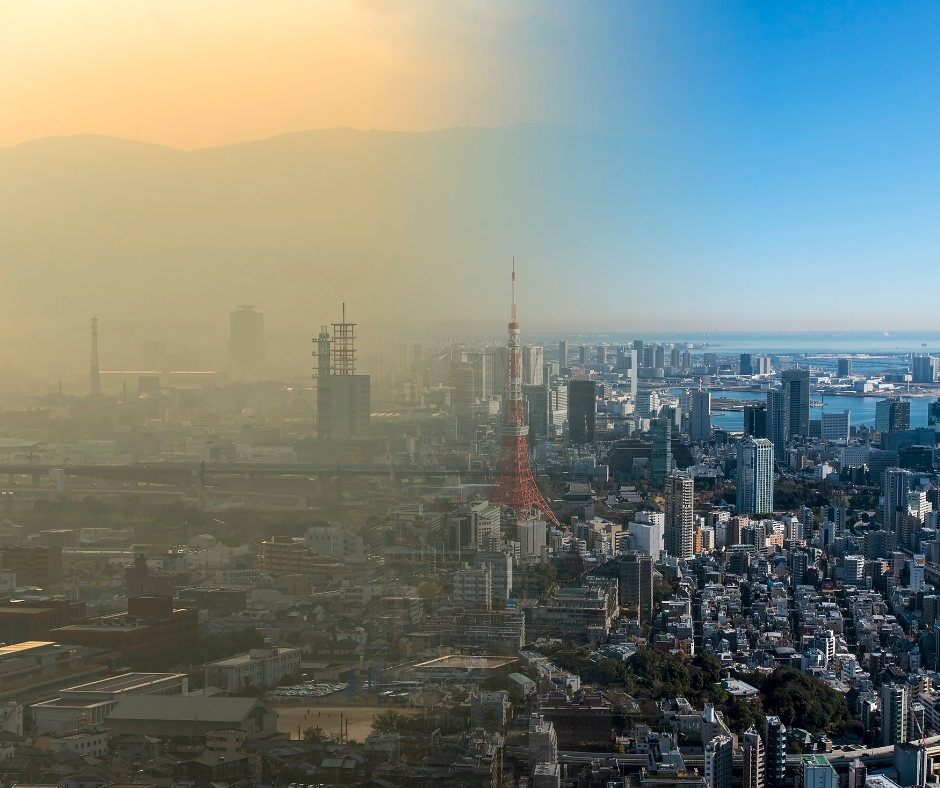We take 20,000 breaths a day, but do you know what's in the air you're breathing? You may think that as long as you can't smell smoke and the sky looks clear, you're in the clear as far as breathing goes.
But microscopic dust particles in the air, known as particulate matter (PM), can still cause great harm. Air pollution is one of the leading causes of death worldwide—deadlier than smoking, malaria, or AIDS (WeForum.org). One of the main sources of air pollution is particulate matter. According to a study conducted by the Andrew Young School of Policy Studies at Georgia State University, exposure to air pollution may influence the severity of coronavirus (WeForum.org).
Particulate Matter Comes In Three Sizes
While all particulate matter is microscopic, it is not all the same. The size of the particles makes a difference.
PM10
Though we tend to take particle pollution in the form of haze or smog for granted, it can have strong negative effects on your health. Particle pollution includes:
- Mold spores
- Dust
- Smoke
- Pollen
- Soot
- Airborne viruses or bacteria
These types of particulate matter belong to the largest group, PM10. PM10 are inhalable particles, with diameters generally 10 micrometers and smaller (EPA). It's important to understand that the PM10 encompasses smaller particulate matter as well: fine dust (PM2.5) and ultrafine dust (PM1.0).

In addition, PM10 is an irritant for eyes, nose, throat, and airways. Sources like road dust and dust from construction work can pose significant health risks.
PM2.5
PM2.5 is the level of particulate matter that's been making news ever since the West Coast wildfires this past summer. Though PM2.5 is extremely small in size — 30 times smaller than the width of a single hair on your head — it packs a punch.
PM2.5 can have deleterious effects on your heart and lungs. According to a study conducted at Harvard's T.H. Chan School of Medicine, "long-term exposure to PM2.5 increases the number of deaths due to COVID-19 by 8% after accounting for many confounding factors" (Lung.org).

PM1.0
Unlike the "small is beautiful" slogan that refers to aesthetically pleasing small-scale architecture, the smallest particulate matter is the most dangerous.
Because these ultrafine dust particles, known as PM1.0, are so tiny, they can infiltrate our bodies more extensively, leading to an even greater risks. PM1.0 particles comprise the majority of indoor particulate matter, so with winter coming, it's crucial to protect ourselves from this invisible health threat.

Get Smart Air Quality Protection
The Wynd Halo detects all three types of particulate matter. The most comprehensive air quality monitor on the market, Halo has 14 software-enabled health and comfort metrics, enabling you to take the right course of action throughout the day.
In addition to PM10, PM2.5, and PM1.0, Halo detects:
- Smoke
- Pet dander
- Pollen
- Dust
- CO2
- VOCs
- Smog
- Temperature
- Humidity
- Light
- Noise

Insights about the air around you can help you make long-term improvements to your environment. Halo recognizes what's in your air and makes recommendations. In addition, Halo can control devices such as smart purifiers, humidifiers, and thermostats to enhance your environment so you can be at your best, whether you're working, resting, exercising, or just breathing.
The Wynd Plus
Recipient of Time's Best Inventions award, Wynd Plus is the size of a water bottle, and incredibly effective in keeping you safe on the go. Wynd Plus creates a bubble of clean air around you with a medical-grade filter that removes 99.9% of particles over 0.3 microns from your breathing space, including pathogen-carrying mucus, protecting your lungs and providing your immune system with the extra support it needs to help you stay healthy.
In 2020, breathing clean, clear air is no small feat. While we can't control what goes on in the atmosphere, know you can depend on Wynd.
